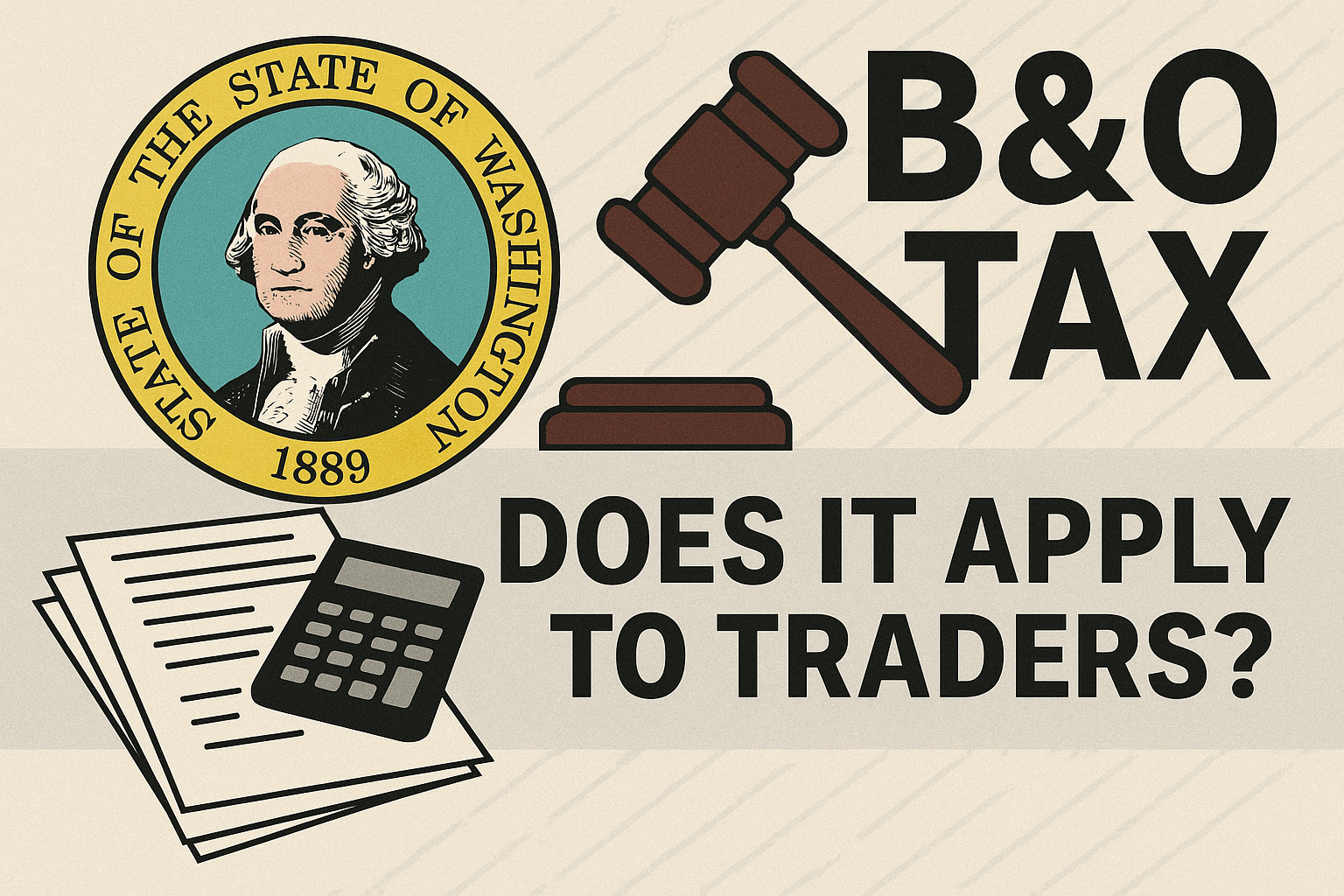Did you know that the IRS once confused a day trader for an amateur magician—because both make money disappear? Understanding the regulations surrounding day trader tax reporting is no illusion, though. This article delves into how trading regulations impact tax obligations, detailing essential tax forms, the influence of SEC and FINRA rules, and the nuances of reporting profits and losses. We’ll explore requirements for pattern day traders, the treatment of trading expenses, and the complexities of wash sales. Additionally, we’ll cover differences in reporting for various asset types and the implications of recent regulatory changes. Join DayTradingBusiness as we guide you through these critical compliance aspects to help you avoid penalties and ensure your trading practices align with legal standards.
How do trading regulations impact tax reporting for day traders?
Trading regulations require day traders to accurately report their gains and losses on tax returns, often demanding detailed records of every trade. They may need to classify their trading activity as business income, which affects how they deduct expenses and pay taxes. Regulations also determine whether they qualify for trader tax status, influencing tax treatment and reporting methods. Compliance with rules like wash sale regulations prevents incorrect deductions, ensuring proper reporting. Overall, regulations shape the complexity and accuracy of tax reporting for day traders.
What tax forms must day traders file under current regulations?
Day traders must file Schedule C for business income, Schedule D for capital gains and losses, and Form 8949 to report individual securities transactions. They may also need Schedule SE for self-employment tax if trading qualifies as a business. If trading qualifies as a trader in securities, they might use Form 4797 for certain assets.
How do SEC and FINRA rules influence trader tax reporting?
SEC and FINRA rules ensure transparency and compliance in trader tax reporting by enforcing accurate record-keeping and disclosure standards. They require traders to report all taxable gains and losses correctly, prevent fraudulent practices, and maintain detailed transaction records. These regulations also influence how brokerages provide tax documents like Form 1099-B, ensuring traders report their day trading activity accurately on tax returns. Non-compliance can lead to penalties, audits, or disqualification from certain trading privileges.
Are there specific regulations for reporting profits and losses?
Yes, regulations specify how day traders must report profits and losses, requiring detailed tracking of trades, accurate use of Schedule C or Schedule D, and adherence to IRS rules for marking-to-market accounting if elected.
How do regulations affect the treatment of trading expenses?

Regulations require day traders to accurately report trading expenses on their tax returns, often demanding detailed record-keeping. They limit deductible expenses, such as commissions, data feeds, and software, affecting net income calculations. Regulatory rules also influence whether expenses are classified as business or investment costs, impacting tax treatment. Non-compliance can lead to audits, penalties, or disallowed deductions. Overall, regulations shape how traders document, categorize, and claim their trading expenses for tax purposes.
What are the reporting requirements for pattern day traders?
Pattern day traders must report all trades on IRS Schedule D and Form 8949, including any gains or losses. They need to maintain detailed records of each trade, including purchase and sale dates, prices, and commissions. Additionally, if they qualify as pattern day traders, they must adhere to specific rules for margin accounts and may need to file a Schedule C if trading as a business. The IRS requires traders to keep meticulous documentation to prove their trading activity and to distinguish between trader status and investor status for tax purposes.
How does regulatory oversight impact Schedule C or Schedule D filings?
Regulatory oversight ensures traders report their Schedule C or Schedule D accurately by enforcing strict rules on recordkeeping and income classification. It increases scrutiny, making misreporting or underreporting risky with potential audits and penalties. Regulations also clarify what qualifies as trading income versus investment gains, guiding traders in proper Schedule C or Schedule D filings. Overall, oversight promotes compliance, pushing day traders to adhere to tax laws and maintain transparent, accurate filings.
Do regulations require separate reporting for different asset types?
Yes, regulations typically require separate reporting for different asset types like stocks, options, and cryptocurrencies. You must categorize gains and losses for each asset class to comply with tax laws. This ensures clear, accurate reporting and proper tax treatment for each asset type.
How are wash sales regulated and reported for day traders?
Wash sales are regulated by the IRS, which disallows claiming a loss if you sell a security at a loss and buy it back within 30 days. For day traders, this means any such loss must be added to the cost basis of the repurchased security, reducing potential gains later. These transactions are tracked using IRS Form 1099-B, which brokers send, but traders must also report wash sale adjustments on Schedule D and Form 8949. Proper documentation and accurate reporting are essential to avoid IRS penalties and ensure compliance with wash sale rules.
What role do IRS rules play in trader tax compliance?

IRS rules define how traders must report income, expenses, and gains for tax compliance. They specify whether traders qualify as investors or business traders, affecting deductions and tax treatment. Following IRS regulations ensures traders accurately report trades, avoid penalties, and maintain legal compliance. Proper adherence influences how trading income is taxed, whether as ordinary income or capital gains.
How do regulations influence the use of trading accounts and LLCs?
Regulations set strict rules on trading account reporting and LLC structures, requiring accurate tax documentation and compliance with reporting standards. They mandate detailed records of trades, income, and expenses, influencing how day traders report earnings. LLCs must adhere to specific tax laws, affecting how profits are taxed and reported, often requiring separate filings. Non-compliance risks penalties, audits, and legal issues, pushing traders to follow regulations closely.
Learn about How Do SEC and FINRA Regulations Influence Day Trading Strategies?
Are there reporting differences for U.S. versus international traders?
Yes, U.S. traders report taxes using Schedule D and Form 8949, focusing on short-term capital gains, while international traders may face different reporting requirements depending on their country's tax laws and treaties. International traders often have to report foreign income and might encounter additional forms related to foreign assets or accounts. The IRS treats U.S. traders' reporting differently than international traders, who must navigate both U.S. and foreign regulations.
How do recent regulatory changes affect trader tax documentation?
Recent regulatory changes require day traders to maintain detailed, accurate records of all trades, including timestamps, prices, and trade rationale. They also enforce stricter reporting standards, making it essential for traders to use precise bookkeeping to comply with IRS rules. Failure to meet these documentation demands can lead to penalties or audit issues. These regulations push traders to adopt more rigorous record-keeping practices and potentially use specialized software to ensure compliance.
What penalties exist for non-compliance with trading reporting rules?
Penalties for non-compliance with trading reporting rules include hefty fines, interest on unpaid taxes, and potential criminal charges. The IRS can impose a $50,000 fine per violation, plus penalties for failure to file or accurately report income. Repeated violations may lead to audits, increased scrutiny, and even criminal prosecution for tax evasion.
How can traders ensure they meet all regulatory reporting standards?
Traders ensure they meet all regulatory reporting standards by accurately tracking all trades, maintaining detailed records, and using compliant software. They must report gains and losses on IRS Schedule D and Form 8949, and adhere to specific rules for wash sales and mark-to-market elections. Staying updated with IRS guidelines and consulting tax professionals helps ensure compliance and proper reporting.
Conclusion about How Do Regulations Affect Day Trader Tax Reporting?

In summary, understanding the complexities of regulations is crucial for day traders to navigate tax reporting effectively. Compliance with SEC and FINRA rules, proper filing of tax forms, and awareness of specific regulations like wash sales can significantly impact a trader’s financial outcomes. DayTradingBusiness can provide the necessary insights and resources to help traders meet their obligations and optimize their reporting strategies.
Learn about How Do Regulations Affect Day Trading?
Sources:
- Doing Business 2020: Comparing Business Regulation in 190 ...
- The Fed - Comprehensive Capital and Analysis Review and Dodd ...
- Tax noncompliance and insider trading - ScienceDirect
- Flying under the radar: The effects of short-sale disclosure rules on ...
- Did PCAOB rules on ethics, independence, and tax services ...
- Do regulations work? A comprehensive analysis of price limits and ...